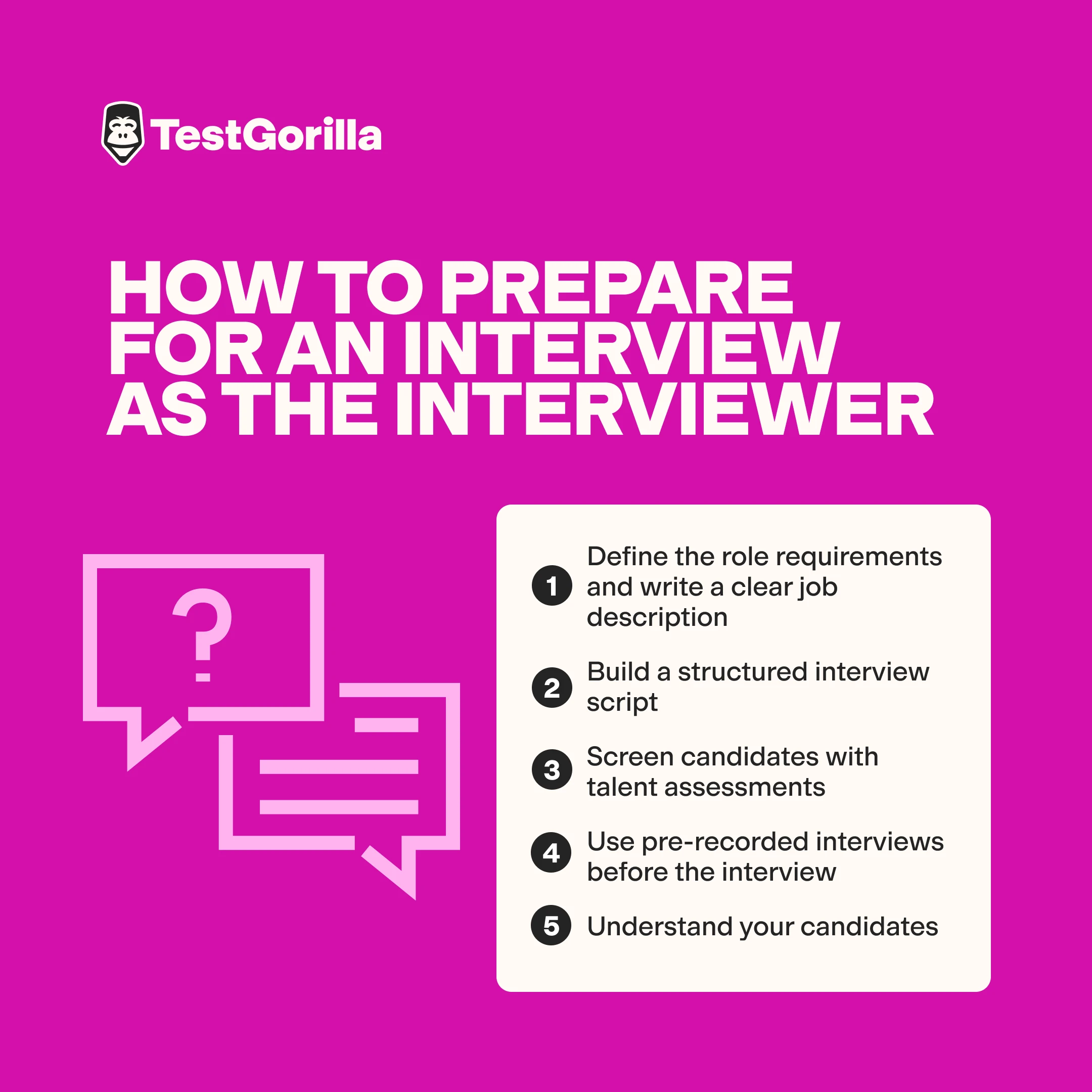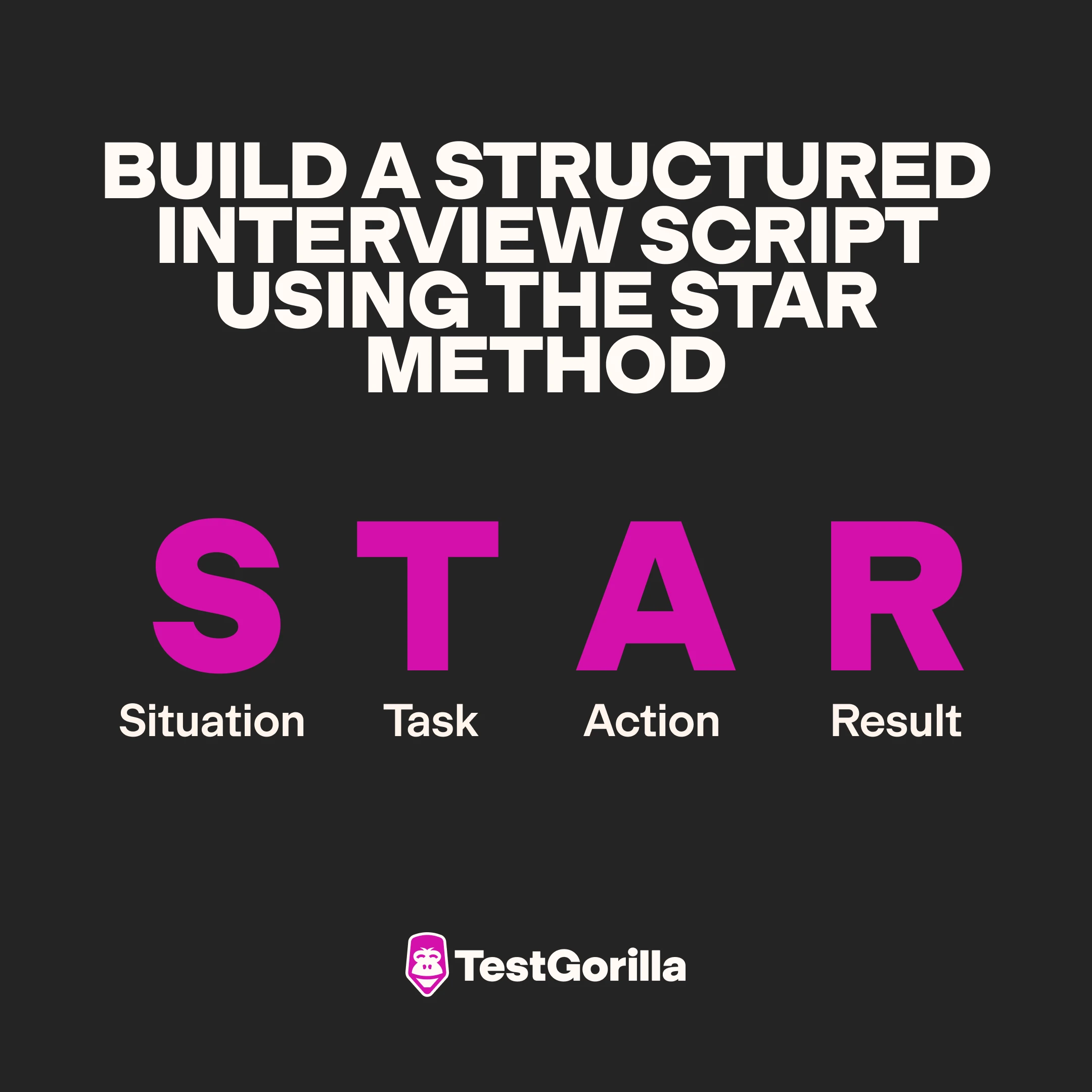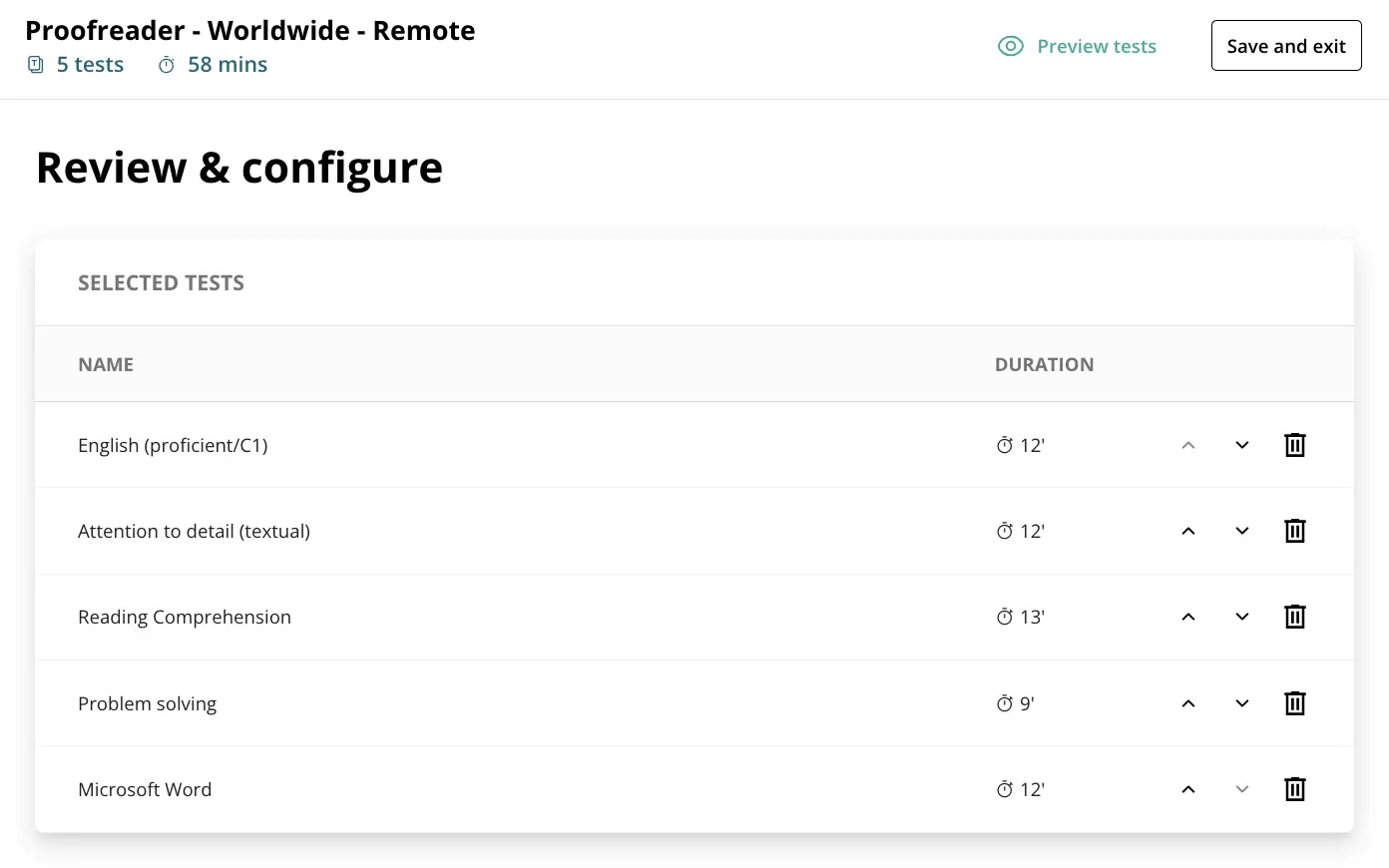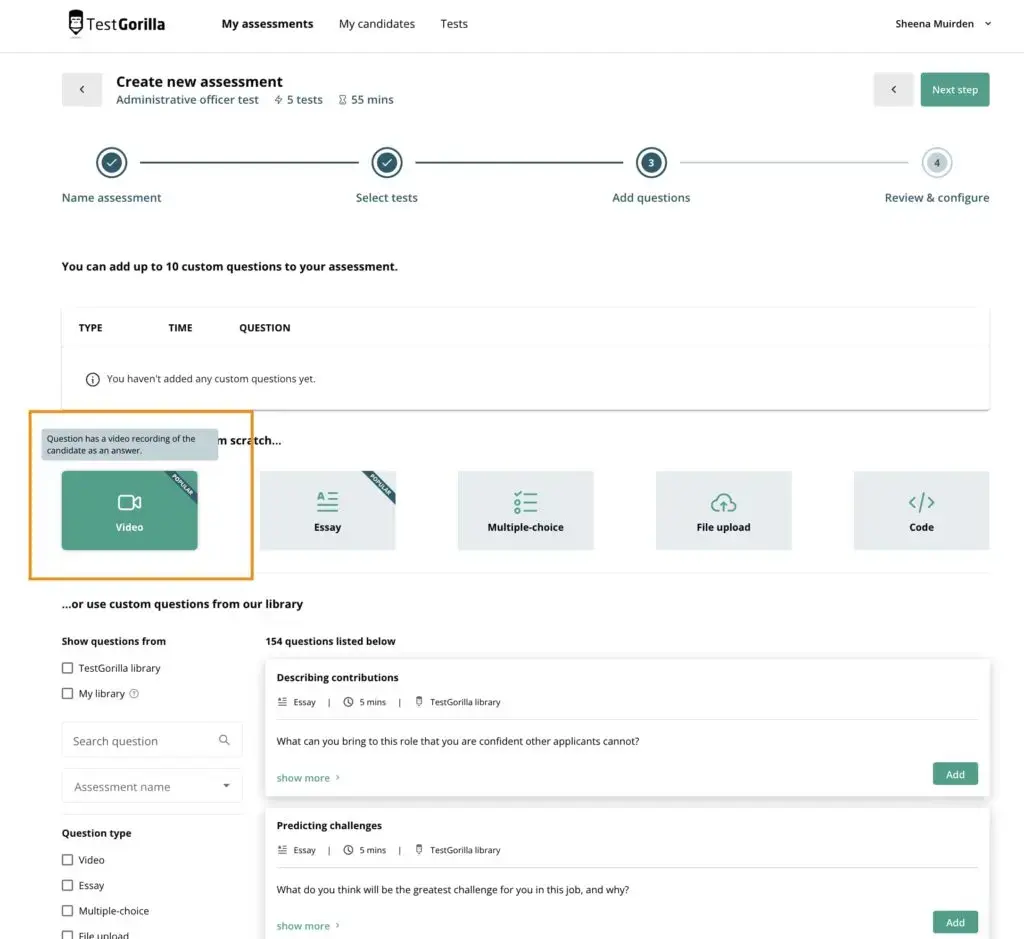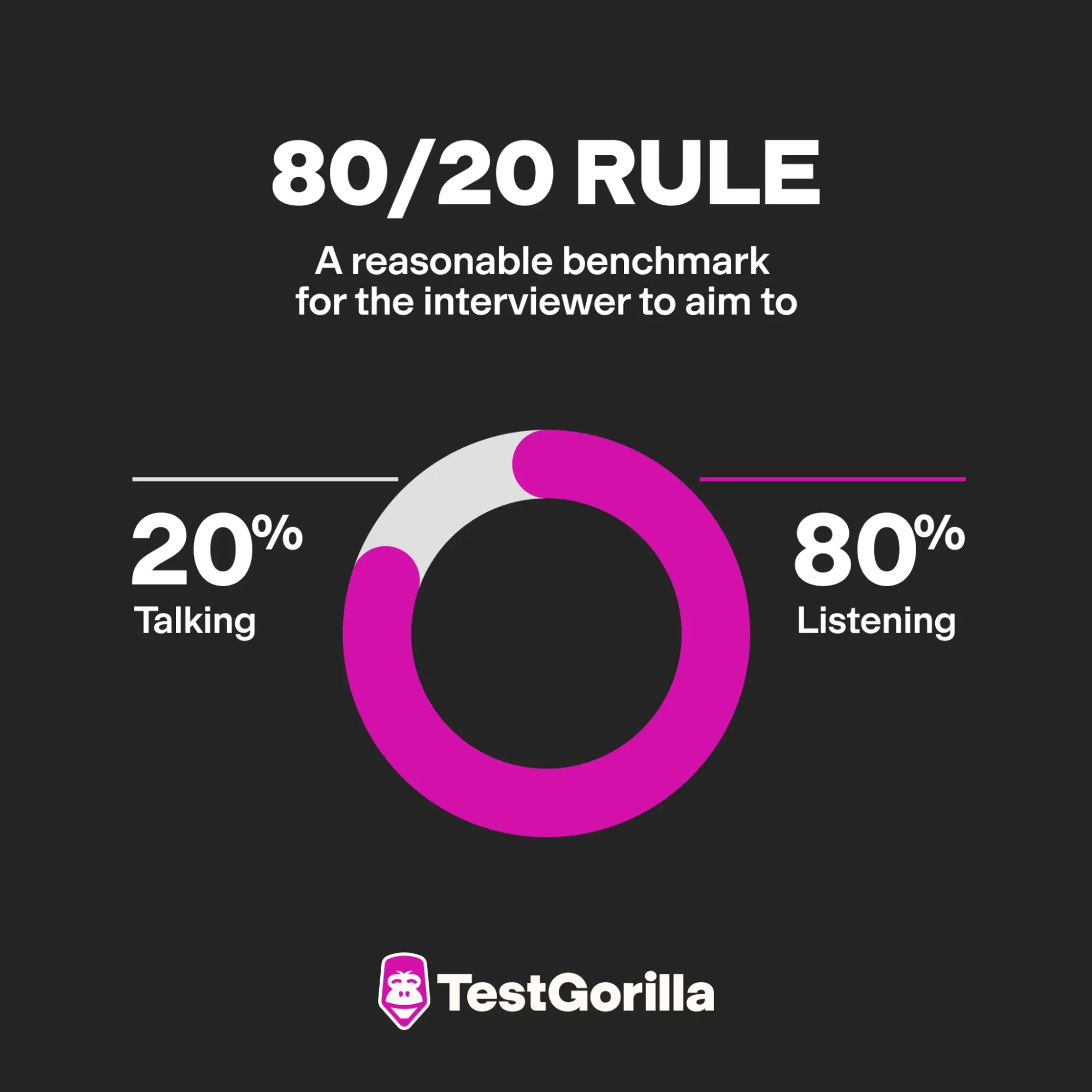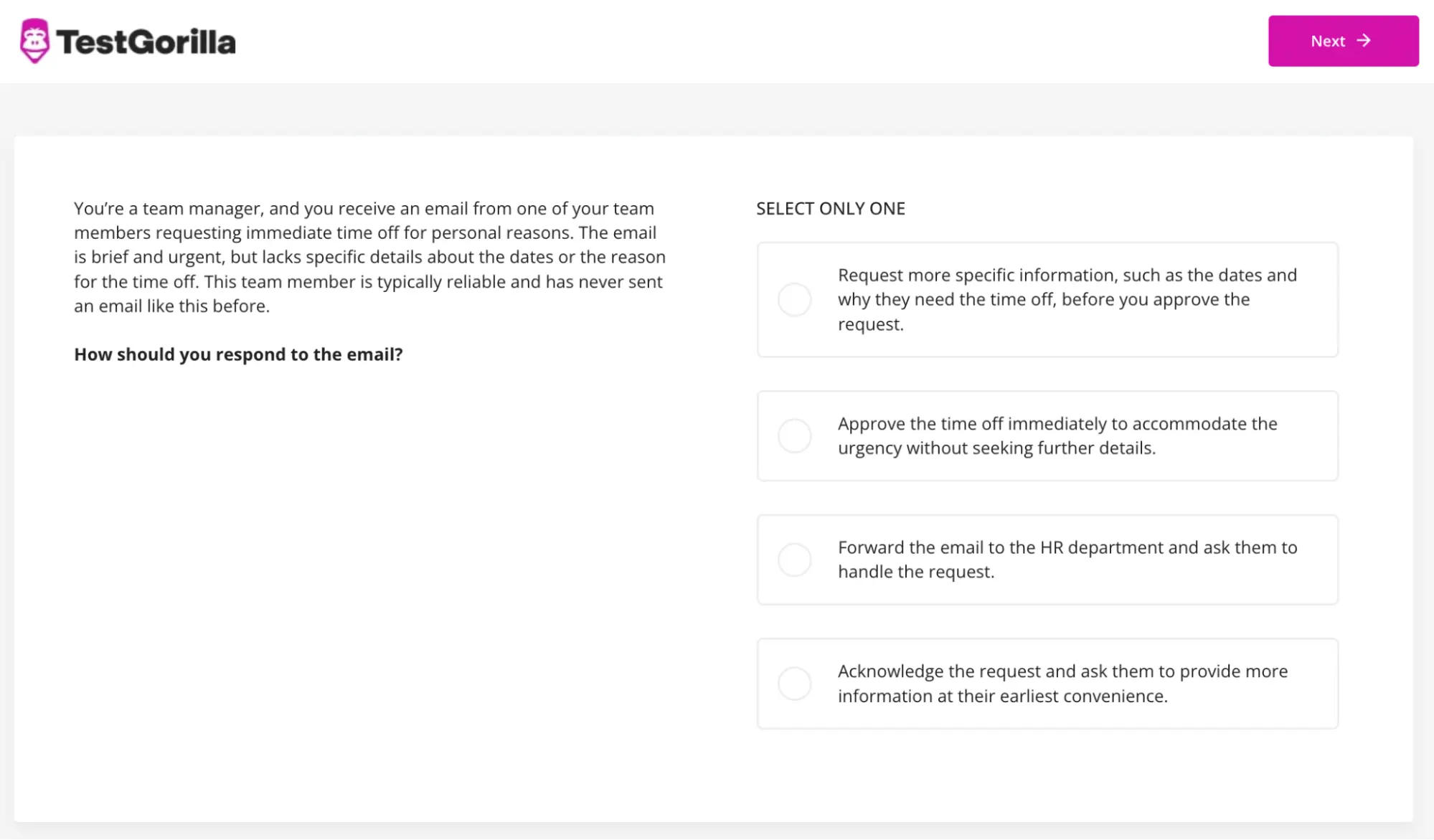How to conduct an interview: A step-by-step guide
Focus on skills, not resumes, by testing pre-interview.
Surely, conducting an interview is a case of just asking job-seekers the right questions and grading their answers, right?
Well… not exactly. Conducting interviews is a golden opportunity to show off your company and culture and prioritize applicants with the skills the role needs.
You can’t do that with cookie-cutter questions and resume checks. It’s time to bring skills testing and active listening into the mix.
In this guide, we explore how to conduct an interview, what to include in your interviewer prep, and how to follow up for the best.
Table of contents
Interviewer prep: How to prepare for an interview as the interviewer
Have you ever attended a job interview and felt confident you could wing it? It’s not a great idea in practice, especially if you’re the one asking the questions.
It’s worth remembering that 33% of people quit the hiring process because they’ve been interviewed poorly. Don’t play into that stat!
So, how do you conduct an interview efficiently with a plan? Here’s a quick breakdown.
How to prep for an interview | Summary |
Define the role requirements and write a clear job description | Be transparent about what you want and don’t want in the role |
Build a structured interview script | Ask a variety of queries, including icebreakers and open-ended questions |
Screen candidates with talent assessments | Use skills tests to let applicants prove their talents and get a clear idea of strengths and weaknesses |
Use pre-recorded interviews before the interview | Ask your deal-breaker questions and get concrete answers so you can filter out applicants |
Understand your candidates | Mindfully research people based on skill test results, references, and materials they provide |
And here are all the details:
1. Define the role requirements and write a clear job description
Okay – what is it you’re looking for? Don’t clog your job ads with jargon and fluff – get straight to the point.
When learning how to prepare for an interview as the interviewer, ask yourself:
What qualities are you looking for in a candidate?
What hard or soft skills do other top performers in your organization possess?
What gaps currently exist on your team?
What are your deal breakers?
The more you define the role and the qualities you’re looking for, the easier it is to know what to ask during the interview.
2. Build a structured interview script
It’s easy to get carried away chatting with a great candidate. So, keep things pleasant yet concise.
One of the best ways to do this, as part of the preparation of an interviewer before an interview, is to write a script.
When writing a structured interview script, include a variety of questions so you can explore what motivates your applicants:
A base set of questions to ask every candidate
Specific questions for each role
Icebreaker interview questions to ease people into the conversation
Interview scorecards to assess people consistently
A mix of question types, e.g., close-ended, open-ended, hypothetical, and behavioral questions
Remember, the best interview questions are open-ended because they give you insight into people. So, try to limit the number of questions people can answer with a simple “yes” or “no.”
For instance, behavioral questions like “Tell me about a time you dealt with a challenging manager” probe candidates' responses to conflict.
You could use the STAR method and ask applicants to talk about Situations, Tasks, Actions, and Results – such as asking a leadership candidate how they handled limited resources in the past.
3. Screen candidates with talent assessments
Are you still using resumes to assess people? You might want to throw them aside – around one in three people in the US lie on them.
Sifting through each candidate’s resume is time-consuming, especially if you have a high volume of job applications.
An eye-tracking study showed recruiters spend an average of seven seconds skimming a resume. However, even if you had the time to read every resume thoroughly, you don’t get the whole story.
Avoid these common hiring mistakes. Instead, use talent assessments to ensure you’re interviewing the best candidates.
You could test job candidates on:
Personality and culture add (cultural fit)
Cognitive ability
Language
Situational judgment
Role-specific skills
Programming skills
Software skills
Assessing candidates’ skills reduces unconscious hiring bias because you’re not relying on identifying information.
Successful firms like EXOGROUP introduced skills testing to pre-screen candidates. After a trial period, the company soon found that TestGorilla’s test library helped it objectively select people based on their strengths and weaknesses.
Depending on the role you’re hiring for, you can even create custom assessments built from several different tests:
Start screening candidates with skills tests today
Use talent assessments to improve hire quality, reduce your cost of hire, and eliminate unconscious hiring bias.
Start screening candidates with skills tests today
Use talent assessments to improve hire quality, reduce your cost of hire, and eliminate unconscious hiring bias.
4. Use pre-recorded interviews before the interview
Why not ask people to record video responses to questions and narrow down the pool? Think of it as a pre-interview and a good way to save time.
You could ask candidates deal-breaker questions about the role, verify facts, and decide whether or not it’s worth pursuing face-to-face interviews with them
TestGorilla’s one-way video interview software and assessment builder helps you filter out the pack and find the right candidate:
5. Understand your candidates
You don’t have long to get to know your applicants, so don’t spend too much of your interview time reviewing resumes. Be mindful and intentional so you can focus on the most important questions.
Before deciding who to invite to in-person interviews, check:
Skills test results
References, if needed
LinkedIn profiles
Cover letters and personal statements
Any additional materials applicants provide
It’s reasonable to assume people research you before interviewing, too. Look for people who show you they’ve done their homework.
How do you conduct an interview? 6 steps for conducting an interview that shines
No two interviews ever end the same way, but it pays to structure your interviews to keep candidates engaged and gather helpful information.
Here are six steps to take when conducting an interview and why:
How to conduct a job interview | Summary |
1. Introduce yourself and your colleagues | Build positive rapport by starting with lighter questions and ease applicants with a clear overview |
2. Carefully structure your interview | Ensure you give everyone the same time and stick to a plan, making sure you cover all bases |
3. Listen and answer questions | Try 80% listening and 20% talking, letting candidates lead with answers and explanations |
4. Be energetic and frame your company positively | Avoid negatively framed questions and share why the role and your company are worth applying for |
5. Communicate the next steps | Be polite and reassure applicants by laying out what happens next in the hiring process |
6. Remember to take notes | Keep notes on your impressions and any details you didn’t have time to address |
1. Introduce yourself and your colleagues
The golden rule is to be positive and build rapport.
Many good interviewers like to find shared interests or discuss general themes before moving on to more serious questions. Build a strong first impression and an enjoyable candidate experience.
You could:
Briefly describe your organization
Discuss the company culture and work environment
Talk about recent projects
Explain how the interview process works
In group interviews, start by acquainting everyone with each other. Explain who you are and introduce your role and company to put people at ease.
2. Carefully structure your interview
Remember your structured script from earlier? It’s time to put it to use. However, it’s also important to structure when your interviews take place, and how long for.
Give everyone the same amount of interviewing time
Don’t keep people waiting or wrap up interviews too early
Keep a clear overview of the areas you’d like to discuss
Tailor your script to each interviewee
To kick off the question portion, start with your general queries to enable candidates to introduce themselves.
You should pace interviews to have time to ask everything on your list of questions. For example, if a candidate lingers too long on one question, you can politely suggest moving on.
Conducting a panel interview? Learn what questions to ask candidates.
3. Listen and answer questions
You’re not the only one getting graded in an interview. After all, you’re a representative of your company, meaning how you communicate with candidates matters as much as what you say to them.
Your main job in an effective interview is listening to what applicants say.
You risk leading people to give answers you want to hear by talking too much. For the same reason, avoid giving explicitly positive or negative responses to anything the candidate says.
In most cases, thanking them for their answer is the best response. Make sure to ask follow-up questions.
Aim for the 80/20 rule: 80% listening and 20% talking.
Look for nonverbal cues – they account for 93% of your applicant's communication. Do they hold themselves confidently through body language and eye contact? Do they appear bored or unengaged, playing with their hands or looking at the clock?
Give people at least 10-15 minutes to ask their own questions. This is their chance to show how prepared they are and how much they care about the role.
4. Be energetic and frame your company positively
Whether you’re learning how to conduct an interview as a manager, hiring manager, or human resources recruiter, you want to leave the candidate with a great first-time impression of your business.
If you head into an interview experience with an optimistic attitude, it’s likely to rub off on your candidate.
Avoid asking questions that elicit negative candidate responses. Questions like “What was your least favorite thing about your last job?” are simply not worth asking.
If you’re deep into the process and a candidate impresses you, scrap some of your questions and sell them on the role and the company instead.
5. Communicate the next steps
Although you shouldn’t assess anyone on the spot, always explain what happens next if a candidate shines.
At the end of the interview, let the candidate know when they can expect to hear back.
After that, thank them for their time.
6. Remember to take notes
Always take notes on each of your candidates so you can easily compare them after interviews. If you can swing it, have someone in the room to take them for you.
Otherwise, HR automation tools such as AI note-takers are great for capturing little details you might miss.
Ideally, jot down notes on anything you didn’t have time to explore further.
You should take notes on your overall impression of the candidate because they always come in handy after you interview several others.
The best insights on HR and recruitment, delivered to your inbox.
Biweekly updates. No spam. Unsubscribe any time.
What to do after an interview
Nice and easy. Just pick who you think interviewed the best, right?
Again, not exactly. Here are a few final steps we recommend you follow.
1. Review the candidate's talent assessment results
Don’t judge your applicants solely on their interviews.
There’s just as much information available in skills-based hiring assessments to help you evaluate them.
For example, TestGorilla’s Communication test explores how your applicants might handle conflict or complex moments in the workplace:
Use talent assessments to optimize your interview process
Use test results to fill in gaps from the interview and base your hiring decisions on objective evidence.
Use talent assessments to optimize your interview process
Use test results to fill in gaps from the interview and base your hiring decisions on objective evidence.
2. Schedule and conduct follow-up interviews
Many organizations conduct follow-up interviews, which enable different interviewers to discover additional insights about each candidate.
Only schedule follow-up interviews if you need a little more convincing. Prolonging the hiring process unnecessarily could put off around 60% of your applicants.
3. Extend an offer
After that, you can make a job offer and negotiate with your chosen candidate, remembering to offer them a smooth preboarding and onboarding experience to make their transition period as pleasant as possible.
Learn how to conduct an interview as a manager and narrow down top talent
Once you know how to conduct an interview properly, spotting who’s great for your team is easy.
Remember to listen carefully, be positive, and use talent assessments for your interviewer prep.
If you want to change how you conduct a job interview, the best first step is to sign up for a free forever plan with TestGorilla.
Need more convincing? Sign up for a free demo, and let our friendly colleagues show you how our assessment builder works in practice.
Curious about the latest interview trends? Check out our complete article about job interview statistics.
How to conduct a job interview FAQs
Before you go, take a quick look at three commonly asked questions.
How do I conduct an interview step by step?
Welcome your candidate and thank them for attending
Introduce yourself and the company
Explain what the candidate can expect from the interview
Ask general questions about their motivations
Talk more about the role and let the candidate ask questions
Ask more specific questions related to the role while taking notes
Give the candidate a chance to ask any final questions
Wrap up the interview and thank the candidate for their time
What should I not do as interviewer preparation before interviews?
Don’t go to bed late the day before
Don’t overstuff your schedule on the day
Don’t drink or eat anything that might cause odor or get stuck in your teeth
Don’t wear too much fragrance
Don’t be rude; always be polite and energetic
Don’t wear overly casual clothes
What is the proper way to start an interview?
Set up your interview space neatly and ergonomically
Politely welcome the candidate and introduce yourself and your colleagues
Let your candidates tell a bit about themselves
Explain what the applicant can expect from the interview
Start asking general questions and exploring the candidate’s motivations
You've scrolled this far
Why not try TestGorilla for free, and see what happens when you put skills first.



